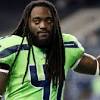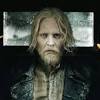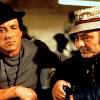Danny Masterson Found Guilty of Raping 2 Women in Retrial

Supported by
The case against a star of the sitcom “That ’70s Show” drew widespread attention because of accusations that the Church of Scientology had tried to discourage his accusers.
-
Send any friend a story
As a subscriber, you have 10 gift articles to give each month. Anyone can read what you share.
Give this article

A jury in Los Angeles on Wednesday convicted Danny Masterson, the actor best known for his role on the sitcom “That ’70s Show,” of having raped two women in a case that drew widespread attention because of accusations that the Church of Scientology had tried to discourage his accusers.
The jury deadlocked on a charge that Masterson had raped a third woman, the Los Angeles County District Attorney’s Office said.
The mixed verdict came after a jury deadlocked on all three charges in November, resulting in a mistrial. The retrial lasted more than a month and jurors deliberated for more than a week before finding him guilty of two counts of rape by force or fear.
Masterson, 47, was taken into custody after the verdict. He will face up to 30 years to life in state prison when he is sentenced on Aug. 4, the district attorney’s office said.
Prosecutors said that Masterson, who played Steven Hyde on “That ’70s Show” from 1998 to 2006, had raped three women at his home in the Hollywood Hills between 2001 and 2003. He was charged in 2020 and had pleaded not guilty. A spokeswoman for Masterson’s legal team said the lawyers had no immediate comment after the verdict on Wednesday.
The case was closely watched in part because of accusations by two of the women that the Church of Scientology, to which they and Masterson belonged, had discouraged them from reporting the rapes to law enforcement, according to court documents. The church has strongly denied that it pressures victims.
Although both trials centered on the same allegations, Judge Charlaine F. Olmedo of Los Angeles Superior Court allowed prosecutors to tell jurors directly in the second trial that Masterson had drugged his three accusers, The Associated Press reported.
Prosecutors only suggested the possibility of drugging in the first trial, as they presented testimony that the women felt disoriented and confused after Masterson gave them alcoholic drinks.
Masterson’s lawyer, Philip Cohen, had argued that the women’s stories were inconsistent and that there was no physical evidence of drugging and “no evidence of force or violence,” The A.P. reported.
“I am experiencing a complex array of emotions — relief, exhaustion, strength, sadness — knowing that my abuser, Danny Masterson, will face accountability for his criminal behavior,” one of Masterson’s accusers, who was identified in court documents only as N. Trout, said in a statement released by a public relations firm for lawyers who are representing her in a lawsuit against Masterson and the Church of Scientology.
Another accuser, who was identified in court documents only as Christina B., said in the same statement that she was “devastated” that the jury had deadlocked on the charge that Masterson raped her in 2001 when they were in a relationship.
“Despite my disappointment in this outcome, I remain determined to secure justice, including in civil court, where I, along with my co-plaintiffs, will shine a light on how Scientology and other conspirators enabled and sought to cover up Masterson’s monstrous behavior,” she said.
According to a trial brief filed by the Los Angeles County District Attorney’s Office in September, Christina B. had reported the rape to the church’s “ethics officer” or “master at arms,” who told her, “You can’t rape someone that you’re in a relationship with” and “Don’t say that word again.”
According to the brief, Masterson raped a third woman, identified only as Jen B., in April 2003 after he gave her a red vodka drink. About 20 or 30 minutes later, she felt “very disoriented,” the brief states.
According to the brief, Masterson raped her after she regained consciousness on his bed. She reached for his hair to try to pull him off and tried to push a pillow into his face, it states. When Masterson heard a man yelling in the house, he pulled a gun from his night stand and told her not to move or “say anything,” adding expletives, the brief states.
Jen B., after seeking the church’s permission to report the rape, received a written response from the church’s international chief justice that cited a 1965 policy letter regarding “suppressive acts,” the brief states.
To her, the response signaled that if she were to report a fellow Scientologist to the police, “I would be declared a suppressive person, and I would be out of my family and friends and everything I have,” the brief states. Still, she reported the rape to law enforcement in June 2004, the document states.
N. Trout told her mother and best friend about the rape, but not the church, the brief states.
“If you have a legal situation with another member of the church, you may not handle it externally from the church, and it’s very explicit,” she said, according to the brief. She added that she “felt sufficiently intimidated by the repercussions.”
The church said in a statement in April that it “has no policy prohibiting or discouraging members from reporting criminal conduct of anyone, Scientologists or not, to law enforcement.”
“Quite the opposite,” the statement said. “Church policy explicitlydemands Scientologists abide by all laws of the land.”
Michael Levenson joined The Times in December 2019. He was previously a reporter at The Boston Globe, where he covered local, state and national politics and news.
- Give this article


 United States
United States Argentina
Argentina  Australia
Australia  Austria
Austria  Brazil
Brazil  Canada
Canada  Chile
Chile  Czechia
Czechia  France
France  Germany
Germany  Greece
Greece  Italy
Italy  Mexico
Mexico  New Zealand
New Zealand  Nigeria
Nigeria  Norway
Norway  Poland
Poland  Portugal
Portugal  Sweden
Sweden  Switzerland
Switzerland  United Kingdom
United Kingdom 





































